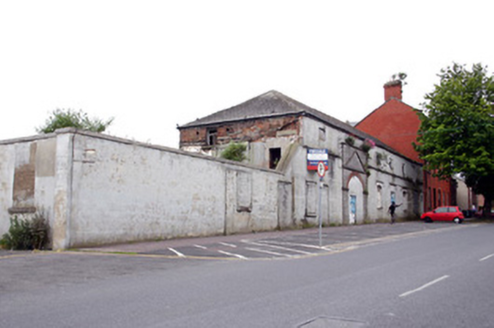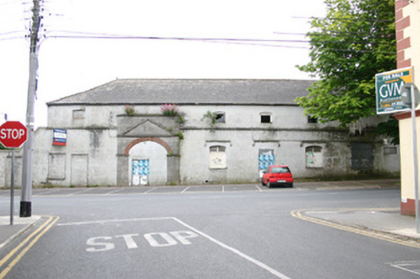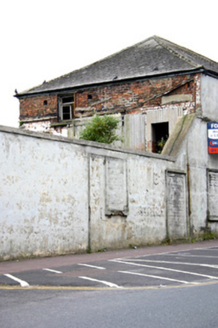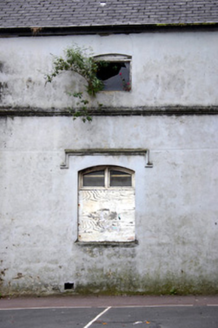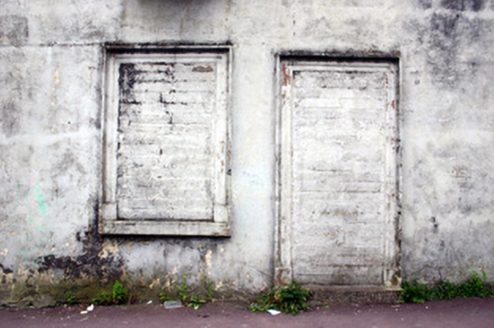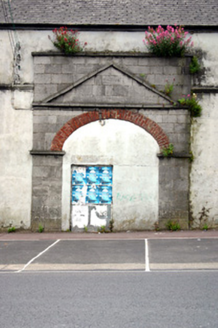Survey Data
Reg No
21521085
Rating
Regional
Categories of Special Interest
Architectural, Artistic
Previous Name
Prospect Hill Clothing Factory originally Limerick Army Clothing Factory
Original Use
Factory
In Use As
Building misc
Date
1820 - 1860
Coordinates
157535, 156192
Date Recorded
29/06/2005
Date Updated
--/--/--
Description
Attached seven-bay two-storey rendered former factory building, built c. 1830, originally of greater extent, with truncated remains of original structure to the north. Now distinguished by a limestone ashlar three-centred red brick carriage arch beneath pediment. Hipped slate roof with clay ridge tiles. Rendered walls throughout with stringcourse at first floor level. Exposed red brick elevation to side most likely an internal dividing wall. Segmental-arched window openings with drip moulds at ground floor level, all having rendered reveals, limestone sills, and mullioned window openings at ground floor level and timber window frames only extant at first floor level. Openings blocked or boarded-up. Square-headed door openings with moulded architraves, now blocked-up. Blocked-up limestone ashlar carriage arch, with piers from which a red brick carriage arch springs. All beneath a triangular pediment and parapet. Large derelict site to rear.
Appraisal
The 1865 OS map identifies this site as Tait's Army Clothing Factory. The 187 OS map2, however, describes this site as the Prospect Hill Clothing Factory. The site was formerly that of 'the old auxiliary workhouse at Boherbouy'. It was leased to Tait for 999 years with the previso favouring his expansion plans which entitled Tait to 'rebuild or wholly take down the stores' forming part of the central part of the buildings and replace them with 'useful and permanent improvement'. It is not clear today, what predates Tait's vast improvements and expansion of the site buildings. In 1919 Patrick John Fitzgerald Munden restored it for Trustees of the Lance Estate, following fire damage. Though currently in poor condition, it is an interesting element in the streetscape, and is more reminiscent of the area's strong military heritage than of a commercial factory building.
